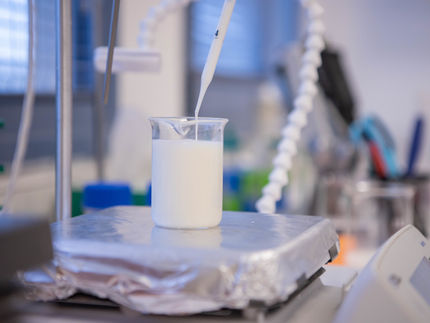Record $824 million invested in alternative protein companies in 2019
$930 million already invested in Q1 2020
Advertisement
New reports released today by nonprofit The Good Food Institute (GFI) reveal that 2019 and Q1 2020 have been record periods of investment in companies creating alternatives to conventional animal-based foods, including U.S. plant-based meat, egg, and dairy companies and global cultivated meat companies.

Photo by Alexandra Andersson on Unsplash
GFI’s state of the industry reports, which analyze investment activity within these industries, show that U.S. plant-based meat, egg, and dairy companies received more than $747 million in investments in 2019—the most capital raised in any single year in the industry’s history, surpassing the amount raised in 2018 by 11 percent, or $74 million. This figure includes $457 million in venture capital and $290 million raised by Beyond Meat in their groundbreaking IPO and subsequent public offering.
Investment in U.S. plant-based meat, egg, and dairy companies in Q1 2020 was almost as much as 2019 full-year investment totals, with $741 million invested in the first quarter, even as Covid-19 has disrupted global markets. U.S. plant-based meat, egg, and dairy companies have raised $2.7 billion in venture capital in the past decade (Q2 2010–Q1 2020), 45 percent or $1.2 billion of which was raised in 2019 and Q1 2020 alone.
Global cultivated meat companies raised more than $77 million in capital in 2019, which is 63 percent more than in 2018 and more than double the capital raised in 2016 and 2017 combined. In the first quarter of 2020, cultivated meat companies raised $189 million, more than the amount invested in the cultivated meat industry’s prior history, with Memphis Meats’ landmark $186 million Series B funding round.
For cultivated seafood companies, 2019 was a watershed year. Three cultivated seafood companies raised Series A rounds—a first for the category. By the end of 2019, 55 cultivated meat companies had formed across the globe, 20 of which launched in 2019 alone. This was a 57 percent increase from 35 companies in 2018.
“There’s been a surge in investor confidence fueled by durable and increasing consumer interest in alternative proteins,” said GFI Associate Director of Corporate Engagement Caroline Bushnell. “Investors have seen the market opportunity and are moving to capitalize on a global shift in the way meat is produced.”
“This record-level investment will bolster the industry and support continued growth and innovation for the long term, ensuring that alternative protein companies have the resources to grow and thrive, particularly during times of short-term market volatility. The Covid-19 crisis has made bolstering our global protein supply more critical than ever, given the inherent—and now very apparent—vulnerability of supply chains dependent on industrial animal agriculture.”
“Plant-based and cultivated meats give consumers everything they like about meat but produced more sustainably,” said GFI Executive Director Bruce Friedrich. “Most of the conventional meat companies have reconstituted as protein companies, and nine of the 10 biggest have either launched or invested in plant-based meat, cultivated meat, or both. With historic pressures on conventional meat production, we expect to see the large meat conglomerates double down on their alternative protein investments.”
According to Nielsen, plant-based meat sales have skyrocketed as Americans continue to stock up on food supplies amid Covid-19 lockdowns. Plant-based meat dollar sales grew 265 percent over the eight-week period ending April 18, 2020, which is six times faster than conventional meat sales. SPINS data compiled by GFI shows that retail sales of plant-based meat grew 18 percent in 2019, which is over six times faster than sales of conventional meat and nine times faster than total U.S. retail food sales. UBS analysts say the plant-based meat market alone could grow 28 percent a year to $85 billion by 2030.
































































